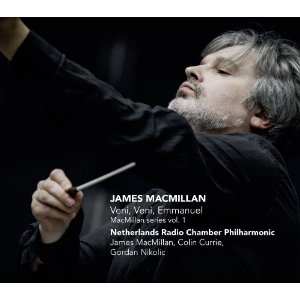It’s a sadness to all lovers of the French horn that Mozart’s four horn concertos, the product of his longest friendship, make their appearance all too rarely in the concert hall. Though the building blocks of the repertoire, perhaps their apparent frivolity counts against them. But last night the Orchestra of the Age of Enlightenment and its principal horn Roger Montgomery brought out of mothballs the best-known concerto, K495, and planted it in the middle of a programme celebrating Mozart the entertainer.

Stanislaw Skrowaczewski. That's quite a mouthful. Bruckner's symphonies can be too. But this is one of the reasons why Skrowaczewski has acquired quite a cult following for his Bruckner performances; it's why I once drove all the way to Zurich to hear him conduct one. His Bruckner is never offered as an indigestible slab of meat. It's never hard or chewy.

The prospect of adventuring from one unpredictable day to the next in the course of Michael Tippett’s Triple Concerto, and from dawn to twilight in just over an hour’s orchestral music from Wagner’s Ring, seemed very much weighted in the English composer’s favour. Frankly, had Mark Wigglesworth only conducted Siegfried’s Funeral March in this concert’s second half, he would have consolidated an already glowing reputation as a top-notch Wagnerian.

It is considerate of Manchester’s two professional symphony orchestras to have organised their opening Wagner celebration salvoes so that they dovetail so neatly. The BBC Philharmonic opened their season three weeks ago with the Wesendonck Lieder, famously inspired by the composer’s infatuation with Mathilde, the wife of his wealthy sponsor Otto Wesendonck, and featuring those two well-known studies for Tristan und Isolde, "Im Treibhaus" (In the Hothouse) and "Traume" (Dreams).

The quest for the spiritual in the musical has been the dominant preoccupation of Jonathan Harvey’s since his earliest works. Rudolf Steiner’s philosophy has been an acknowledged influence on the composer, who has made a career of exploring what Steiner described as “the special character of the individual note”, which “expands into a melody and harmony leading straight into the world of the spirit”.

Can two half-orchestras playing together ever be better than one well-established organism? The second and third concerts in yet another special project masterminded by Vladimir Jurowski, drawing together British and Russian perspectives on war and peace, proved that they could. It may have been disappointing to find the Russian National Orchestra on Thursday evening launching so cold-bloodedly into the feral start of Vaughan Williams’s Sixth Symphony.



Somehow the manic cry of “Scooby-Doo man!” from the back of the stalls didn’t seem too incongruous. We were in the thick of Shostakovich’s craziest symphony, the Fourth, composed in the mid 1930s when such maverick Russian talent was about to be stamped on and potentially quite a sledgehammer of a season opener for the BBC Symphony Orchestra.

“For if their musicke please in earthly things/How would it sound if strung with heavenly strings?” Listening to viol consort Fretwork last night, the audience at the Wigmore Hall didn’t have to imagine the answer to Gibbons’ question. Listening to the vitality and variety of tone colour this group so reliably produce, it’s hard to remember that this is ear(th)ly music – hardly the wan and consumptive sound so many people still stubbornly associate with viols.
Wagner was not averse to highlights being plucked from the mighty Ring, even though it is an all-encompassing drive-through drama. Perhaps it’s as well, since the bicentenary celebrations of his birth are getting up steam and concert planners are at pains to pull out a few plums. After all, we can’t wallow in the whole of the cycle all of the time.

